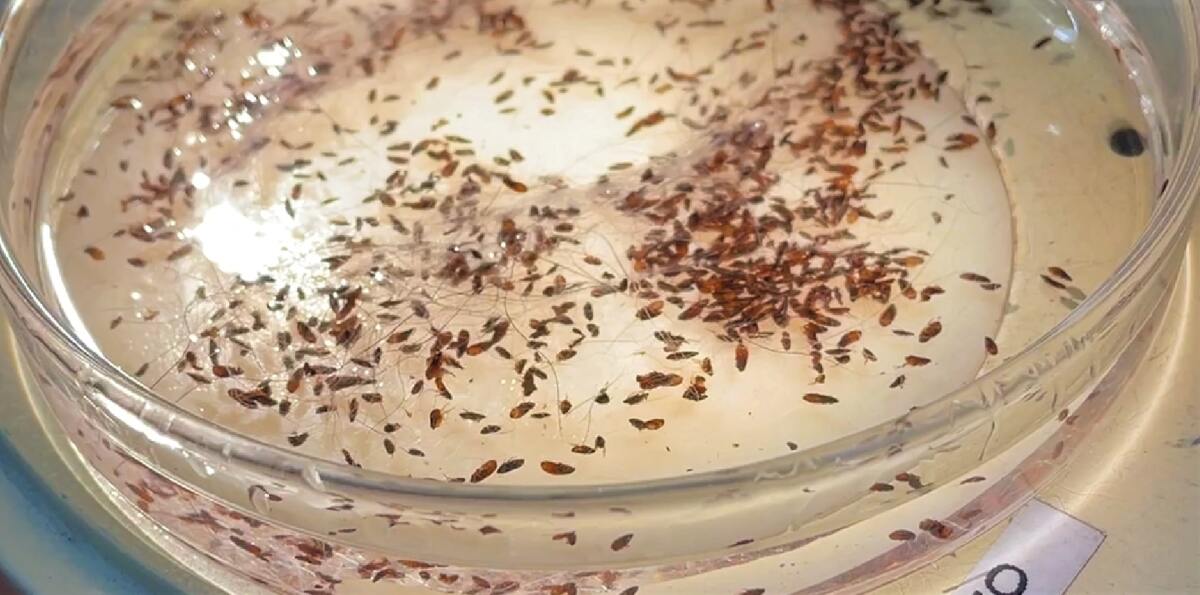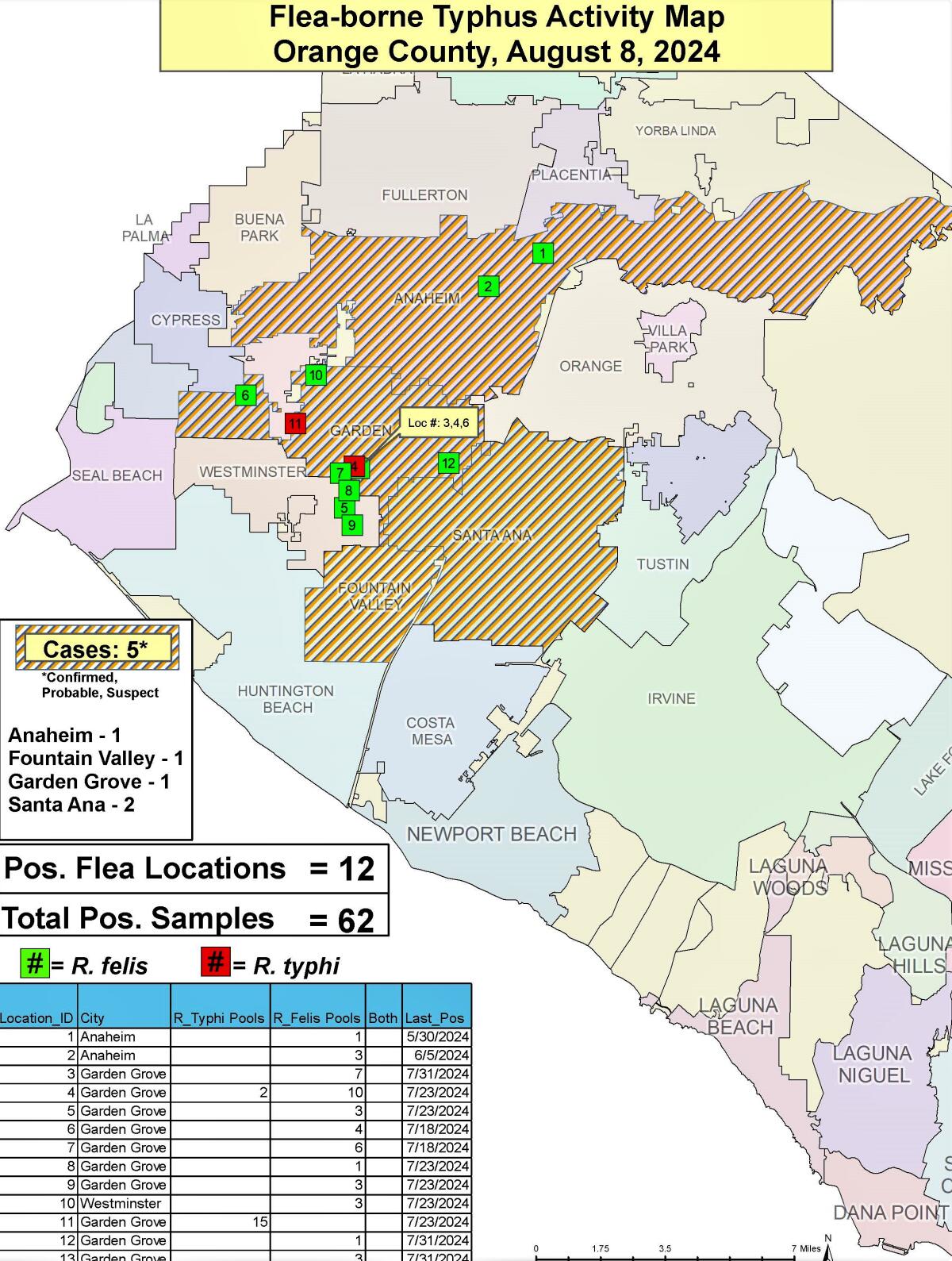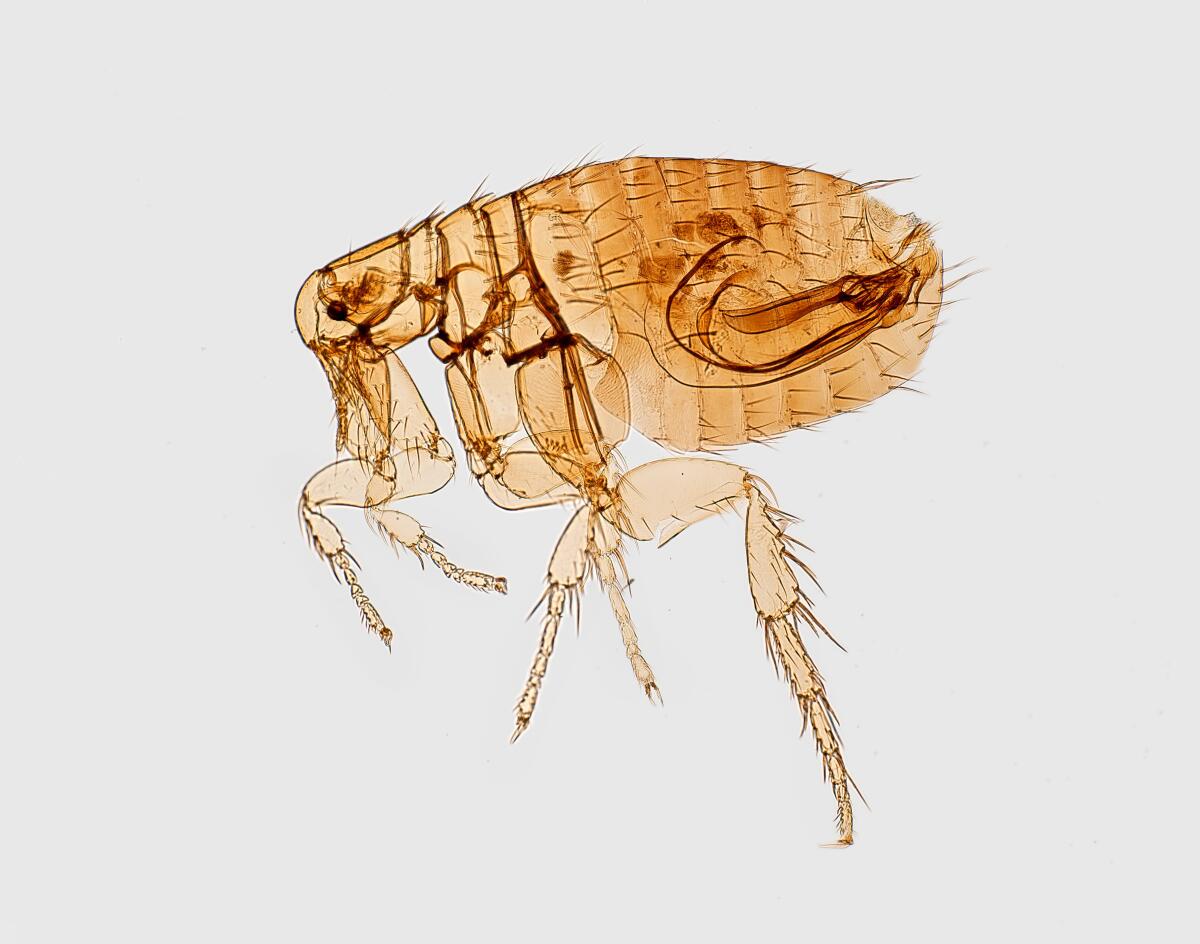Human case of flea-borne typhus in Fountain Valley is O.C.’s fifth this season

Orange County vector control officials are urging residents to keep their pets, bodies and homes flea free after a human case of flea-borne typhus was detected in the city of Fountain Valley this month.
The infection of an unidentified individual in the vicinity of Slater Avenue and Magnolia Street marks the fifth human case of the bacterial disease — carried by fleas and spread to other species through fecal matter — in Orange County this year.
Another human typhus case was reported this month in Garden Grove, while an Anaheim resident with the disease was discovered in July and two cases, one in January and another in June, occurred in Santa Ana, Orange County Mosquito and Vector Control District spokesman Brian Brannon confirmed Tuesday.

“You don’t get sick from a flea biting you,” Brannon said, clarifying typhus is not a blood-borne illness and cannot be transmitted from one human to another. “You get sick from scratching a bite and then the flea’s fecal matter gets into your bloodstream.”
The disease may also be spread to humans through wounds, inhalation, food ingestion or by touching one’s eyes with dirty hands, according to the agency’s website. Besides fleas, the Rickettsia bacteria that causes typhus may be carried by opossums, rats, mice and other small mammals, including cats and dogs.
While vector control officials do not trap animals for testing, staff do test dead animals that come into the agency’s lab for typhus, among other diseases.
Since May 30, 62 animal samples taken from 12 locations, primarily in Anaheim, Garden Grove and Westminster, have tested positive for typhus, the agency reports.
Although the county did not record a single case of flea-borne typhus in humans between 1993 and 2006, the disease is now considered by the California Department of Public Health to be endemic, according to the Orange County Health Care Agency.

In humans, flea-borne typhus, formerly called murine typhus, may cause fever, chills, headaches and muscle pain — symptoms that tend to set in six to 14 days after contact with an infected flea. Nausea, vomiting or coughing may also be present.
Untreated, the disease can be fatal. However, most infections are mild and people recover within a few days after receiving antibiotics. Still, the county health agency reported about 10% of those stricken need to be hospitalized.
Brannon encouraged residents to regularly inspect their pets’ and other animals’ bedding for fleas and feces, aka “flea dirt,” typically the first sign of infestation. Pets should be kept up to date on flea-control and heartworm treatments.
Outdoor areas should remain free of standing water, pet food or fallen fruit from trees and be cleared of brush where common carriers may seek shelter.
“It’s really about keeping your yard clear,” Brannon said. “We also don’t recommend people feed or pet feral cats. Feral cats are out there mixing it up with all kinds of wildlife that may have fleas and carry typhus.”
More to Read
Sign up for Essential California
The most important California stories and recommendations in your inbox every morning.
You may occasionally receive promotional content from the Los Angeles Times.











